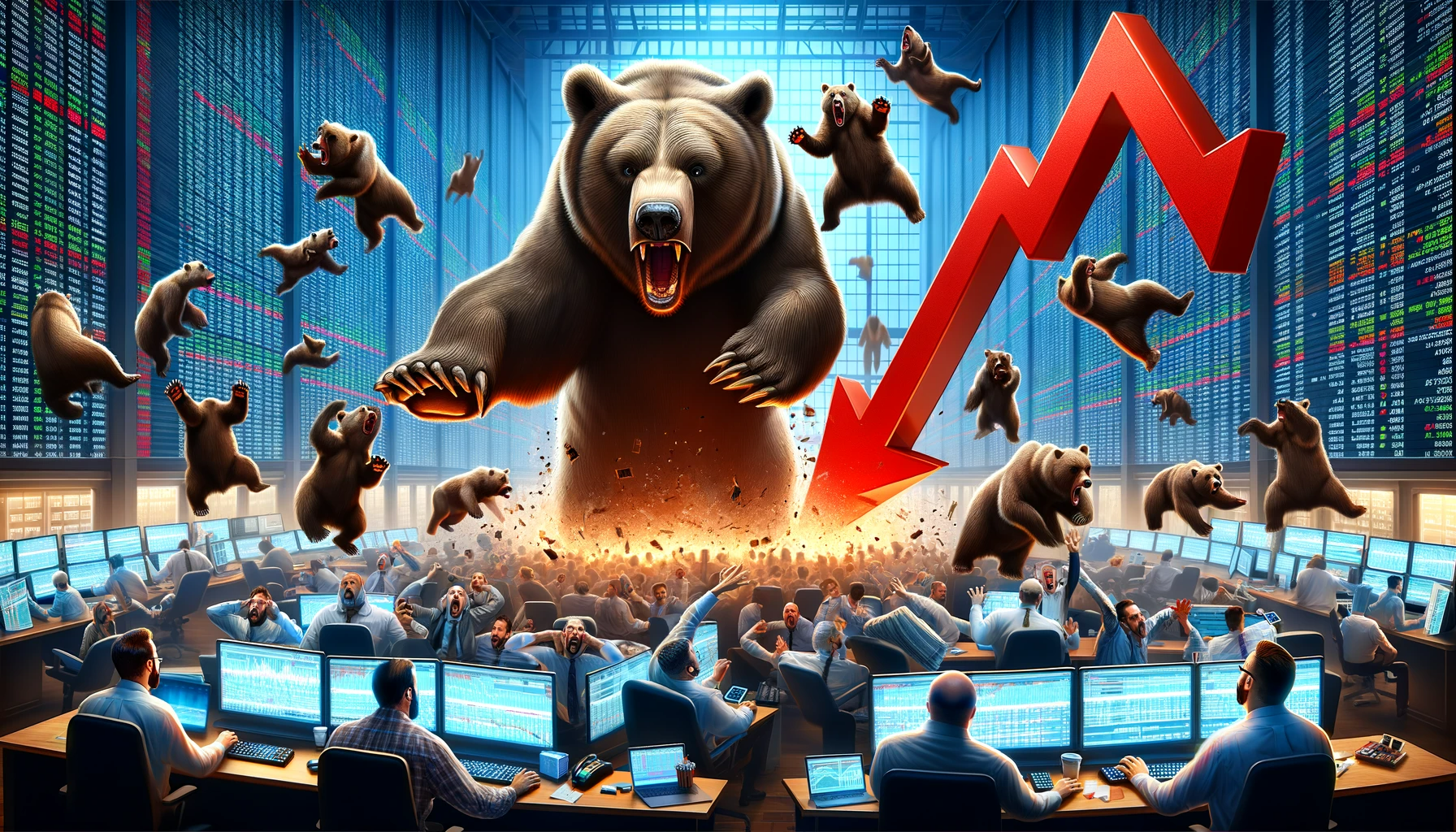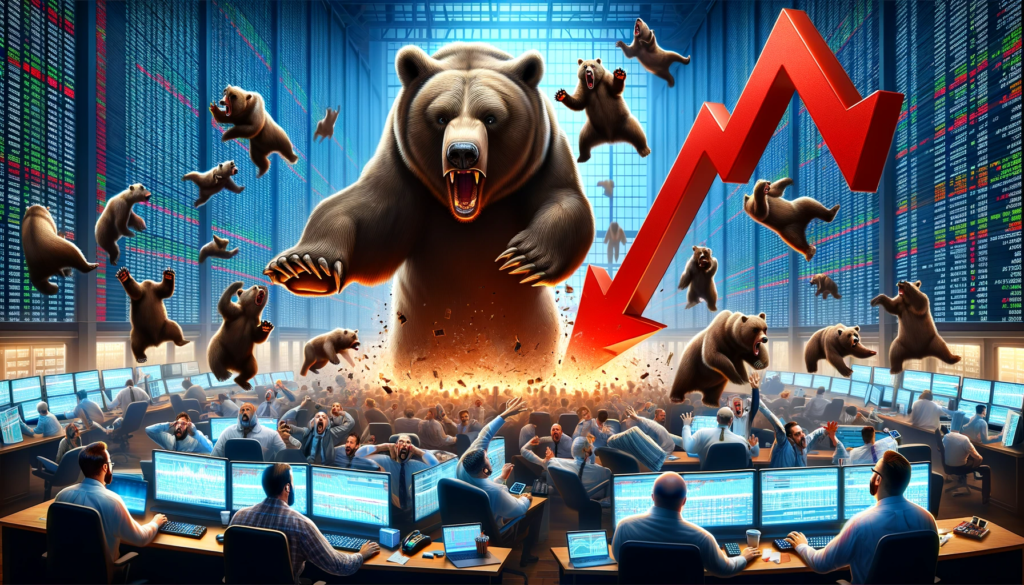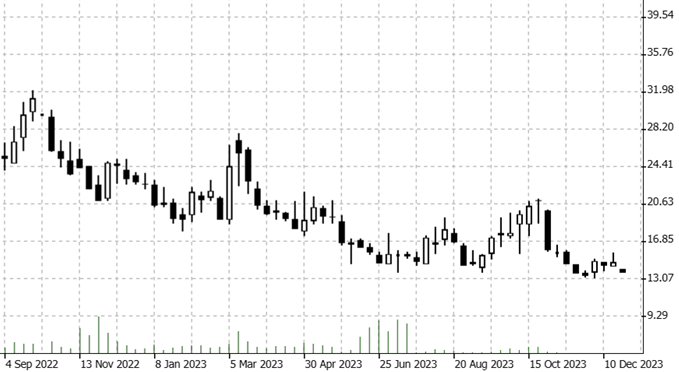

08.01.2024 – Now that’s a dissenting voice: Wall Street has just produced a brilliant year-end rally, and now a fund manager is warning of the biggest crash of all time. We may not have been familiar with economist Harry Dent before, but he could still be right.
The head of the investment boutique HS Dent Investment Management recently said in an interview with Fox Business News that the bubble began at the end of 2021 after the Covid pandemic. Now a reset is imminent, like after the Great Depression of 1929, and the coming year will bring the B wave of the “everything bubble”. According to him, the first wave already hit the market in 2022.
The end of all assets
And then the investment manager got specific for 2024: “That’s an 86% crash in the S&P and a 92% crash in the NASDAQ. And crypto, it’s going to be 96%. So that’s a big deal,” the expert said. We think so: With such an asset armageddon, the Volatility Index will jump sharply upwards, here is the weekly chart.

Source: Bernstein Bank GmbH
And it is not only the financial market that will suffer, according to Dent: “And real estate, by the way, is only projected, by me, to go back to its 2012 lows… but that’s a 50% crash for the average house, which went down 34% in the last crash, more than the Great Depression, more than any time in history. That’s what’s going to hurt people the most.”
The “everything bubble”
The reason for the bubble bursting is all the air money that not only the Federal Reserve has pumped into the market. “Since 2009, this has been 100 per cent artificial, unprecedented money printing and deficits: $27 trillion over 15 years, to be exact,” said Dent. The economy needs to normalise, he said, and this will happen through the collapse of valuations.
His advice: anyone holding back now from a market with the highest valuation in history might miss out on a few profits. But if he is right, anyone who is cautious will avoid massive losses and will be able to reinvest their money in about a year and a half at incredibly low prices.
Always pessimistic
The problem: Mr Dent is a perma-bear. Back in 2009, he predicted a mega crash in his book “The Great Depression Ahead”. Except for the Covid setback, he was wrong. But Dent is not alone. A few weeks ago, John Hussman, head of the Hussman Investment Trust, who correctly predicted the 2008 crash, forecast a market loss of 63 per cent in the S&P 500 over the next ten to twelve years. This time horizon is of course too long for us. But if there are shockwaves ahead, they will of course be of interest to traders in the coming year. The nice thing about CFD trading is that we can make good profits with short positions even in a crash. We wish you every success for 2024!
___________________________________________________________________________________________________________________________________
The content of this publication is for general information purposes only. In this context, it is neither an individual investment recommendation or advice nor an offer to purchase or sell securities or other financial products. The content in question and all the information contained therein do not in any way replace individual investor- or investment-oriented advice. No reliable forecast or indication for the future is possible with respect to any presentation or information on the present or past performance of the relevant underlying assets. All information and data presented in this publication are based on reliable sources. However, Bernstein Bank does not guarantee that the information and data contained in this publication is up-to-date, correct and complete. Securities traded on the financial markets are subject to price fluctuations. A contract for difference (CFD) is also a financial instrument with leverage effect. Against this backdrop, CFD trading involves a high risk up to the point of total loss and may not be suitable for all investors. Therefore, make sure that you have fully understood all the correlating risks. If necessary, ask for independent advice. CFDs are complex instruments and are associated with the high risk of losing money quickly because of the leverage effect. 68% of retail investor accounts lose money trading CFD with this provider. You should consider whether you understand how CFD work and whether you can afford to take the high risk of losing your money.7
